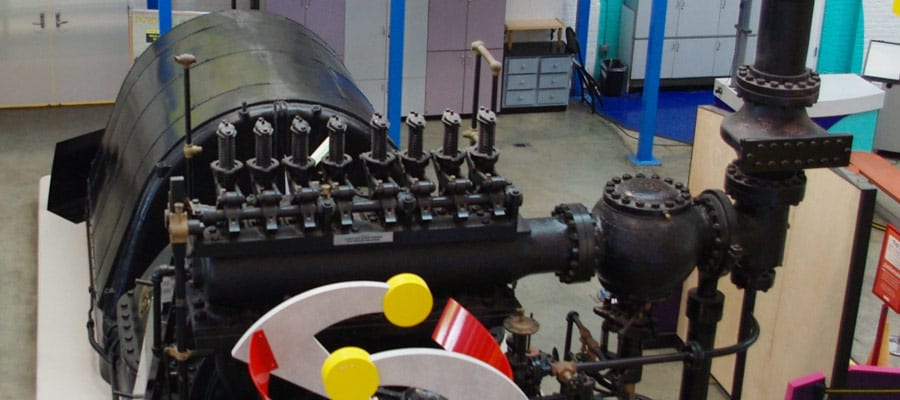Goals
- Supply ample and affordable power to 2 million residents of Portland, Oregon
- Create reliable solution that can be reused throughout the plants owned and operated by Portland General Electric
Challenges
- Megawatt cost skyrockets when there is a power shortage from the grid
- Find a way to have an efficient and optimized plant with less emission
Results
- Dispatchable Standby Generation (DSG) links 32 generators at 21 customer sites ensuring grid reliability at peak power demands.
- The system provides distributed real time monitoring, live video camera feed and an alarming system based on the IEEE-61850-420-7 object standard for all the sites.

``The AVEVA solution is working great. To my knowledge there are no other utilities in the world that have the ability to start 40 megawatts of paralleled power generation located at numerous customer sites with a single mouse click.`` - Mark Osborn, Distributed Resources Manager
Background
Portland, Oregon – During the 19th century, the Oregon Trail became synonymous with prosperity, opportunity and hope for a better life for the thousands of pioneers that braved the 2,000-mile journey west to settle the Pacific Northwest. Helping the United States implement its strategy to expand the nation from the Atlantic to the Pacific, the wagon trail spanned over half the continent bringing settlers from as far east as Missouri to the Oregon Territory.
Dispatchable Standby Generation
PGE’s demand-response program provides electrical grid capacity by linking customer-owned generators as part of a “virtual power plant” for its Dispatchable Standby Generation (DSG) program. With this system, PGE can simultaneously shave peak loads on the grid by using the available aggregated generation from customers emergency stand-by generators as part of their reserve capacity system.
During peak periods when wholesale power is expensive PGE’s EMS System Control Center uses this reserve generator capacity by turning on these generator assets with a single start push button. To do this PGE’s has integrated their Distributed Standby Generator (DSG) System called “GenOnSys” with their EMS system control center “SCADA” system using the AVEVA System Platform.

GenOnSys manages 45 MW at 21 customer sites with 32 generators that is spread out over a large area
Also connected to the “GenOnSys” system are aggregated energy renewables such as fuel cells, micro turbines at a water treatment plant, a solar grid and a gas fired turbine. When all these sites are dispatched, they are aggregated as a single distributed virtual power plant that provides more load capacity to PGE at anytime when wholesale power becomes too expensive.
To manage this system only takes 4 people where other generating sites could take many more employees.
The best benefit of using this cost effective program has given PGE the ability to distribute and aggregate energy resources to support peak power demands.
The Portland General Electric “GenOnSys” Distributed Stand-by Generation system is an example where technology, a program and a business strategy really work together to provide the supplier and customer with cost and business benefits that ends up driving better customer relationships. This benefits PGE where they reduce the high costs of purchased power while providing a least cost peaking resource that increase the reliability of their substation feeders through peak shaving and heat reductions on their transformers.
GenOnSys has enabled the company to avoid buying wholesale power from the Western grid when prices are skyrocketing.
“When the Western power grid is short on power, we’ve seen the cost per megawatt skyrocket by up to 1200 percent,” said Mark Osborn, PGE distributed resources manager. “But thanks to our DSG program operated by AVEVA software, PGE has been able to achieve a significant savings over market prices.”
Solving the challenge through AVEVA software
“The biggest challenge was to find a system that was easy to modify, could communicate with all types of equipment and the different manufacturer protocols we had to link together,” Osborn said. “It also had to communicate effectively with customer generators, solar inverters, substation equipment, relay protection, small wind and hydro generators. With AVEVA software’s powerful features and flexible communications capabilities, it proved to be the ideal solution to meet our needs.”

With GenOnSys, PGE has built an information system that quickly analyzes potential problems that helps improve the efficiency of their customer generators.
If a generator should start either because of an outage or emergency condition, an email and cell phone notification message is automatically sent to key personnel.
Using AVEVA System Platform and Intouch, the “GenOnSys” is able to provide a distributed real time monitoring, live video cameras and alarming system based on the IEEE-61850-420-7 object standard for all the sites. This allows easy integration with the ION Enterprise Metering System, SQL Databases and Ethernet OPC Servers. While the solution is a SCADA system, it really is a set of applications that perform various generation information management functions where the AVEVA solution provides all the core functionality for the monitoring, alarming, analysis, and history services.
To engineer and design the “GenOnSys” System PGE selected Factory IQ as their System Integrator and software developer of choice because they needed a company that was experienced in SCADA and Enterprise Systems who could build a scalable interoperable architecture that would support all kinds of integration with different hardware, software and enterprise solutions.
One of the greatest strengths of PGE “GenOnSys” is it’s ability to easily adapt to new site equipment, add new sites locally and put units on-line quickly,” said Rod Parry, president of Factory IQ, Inc.. Because of the open architecture we built, PGE now uses a scalable and intelligent monitoring system
“The AVEVA solution is working great,” Osborn said. “To my knowledge there are no other utilities in the world that have the ability to start 40 megawatts of paralleled power generation located at numerous customer sites with a single mouse click.”
Smart phone applications and cloud computing drive the AVEVA mobile reporting solution. With the prevalence of smart phone and other mobile technologies, AVEVA Insight phone app leverages this technology so plant data is always available on a cell phone, and in a form that is easy to view and manipulate.
Many of today’s top companies are using cloud computing to provide their workers with important company information in a highly cost effective and secure manner. AVEVA Insight provides the option of leveraging this hosted model to provide critical plant performance data at the lowest possible cost in less than one day, or the option of an on-premises deployment for maximum control and security.
AVEVA seems to have the pulse of the world in hand because they made it so you can flip to your watch, flip to your phone and see what’s going on,” said Russell W. Carpenter.
Reliable Uninterrupted Power
Providing reliable, uninterrupted power is one of the most critical issues in an energy-hungry world. AVEVA has demonstrated that it can play a key role in the Pacific Northwest, enabling Portland General Electric to meet electricity demand by managing a grid supplied by a wide variety of conventional and alternative power sources.